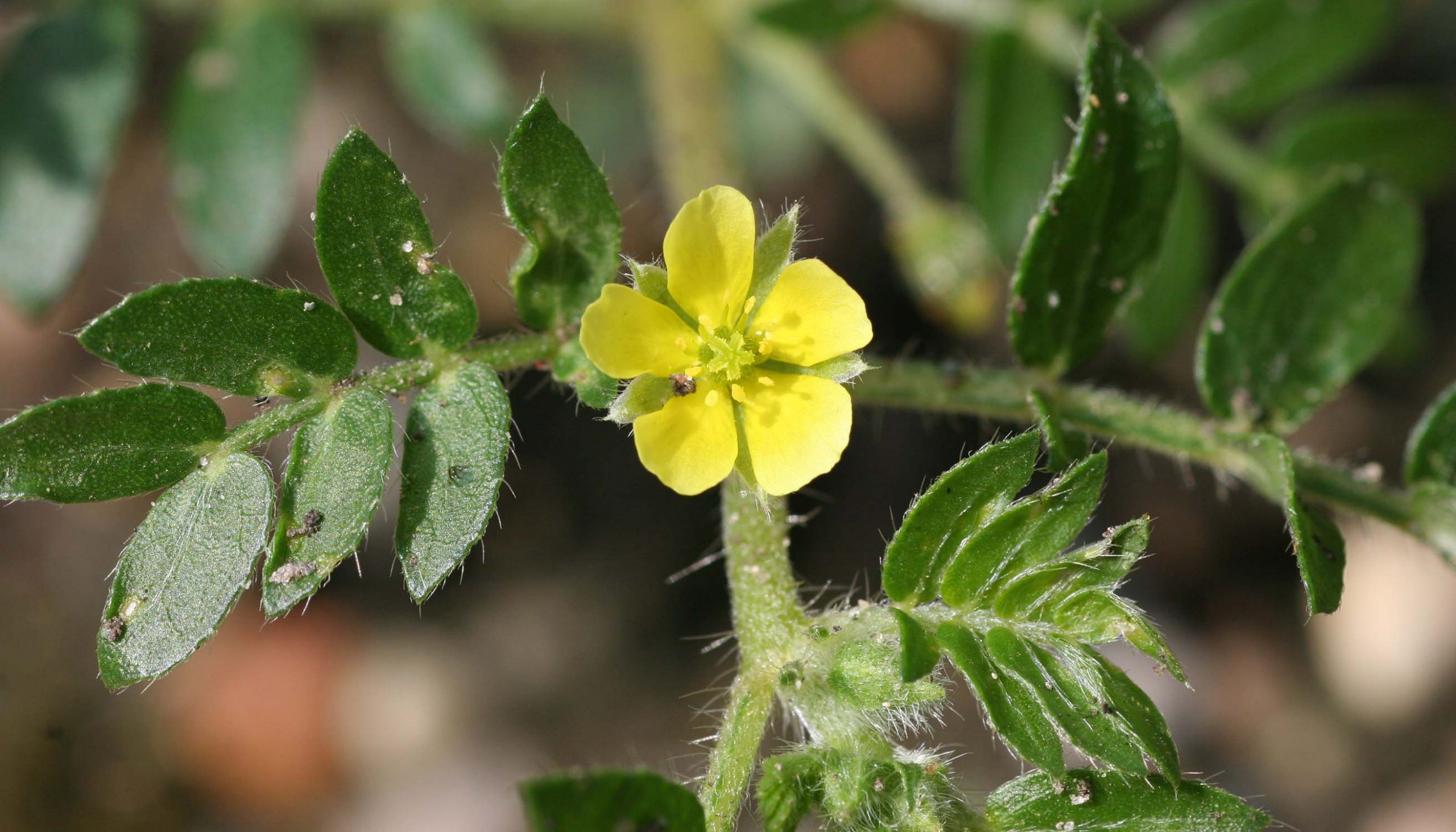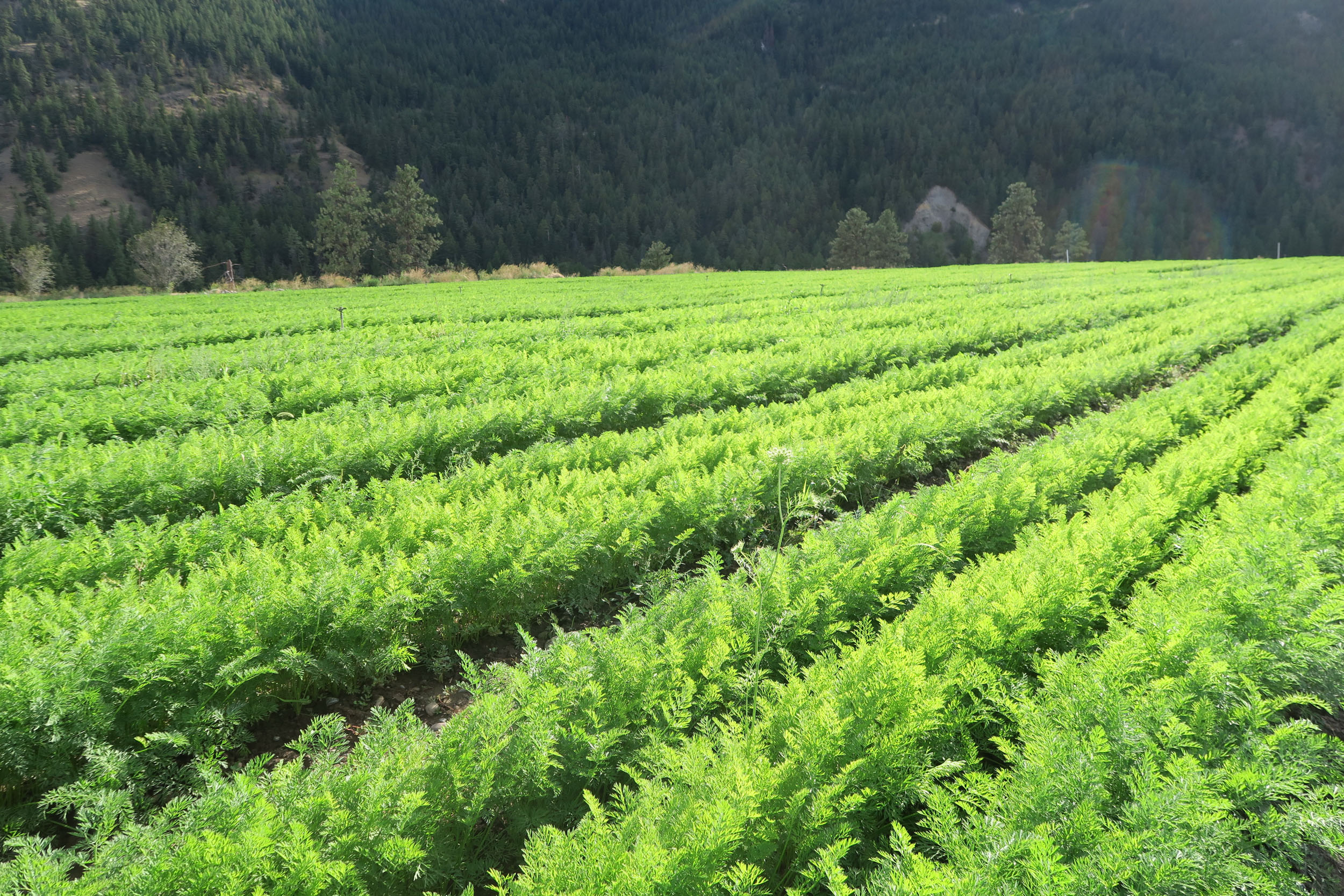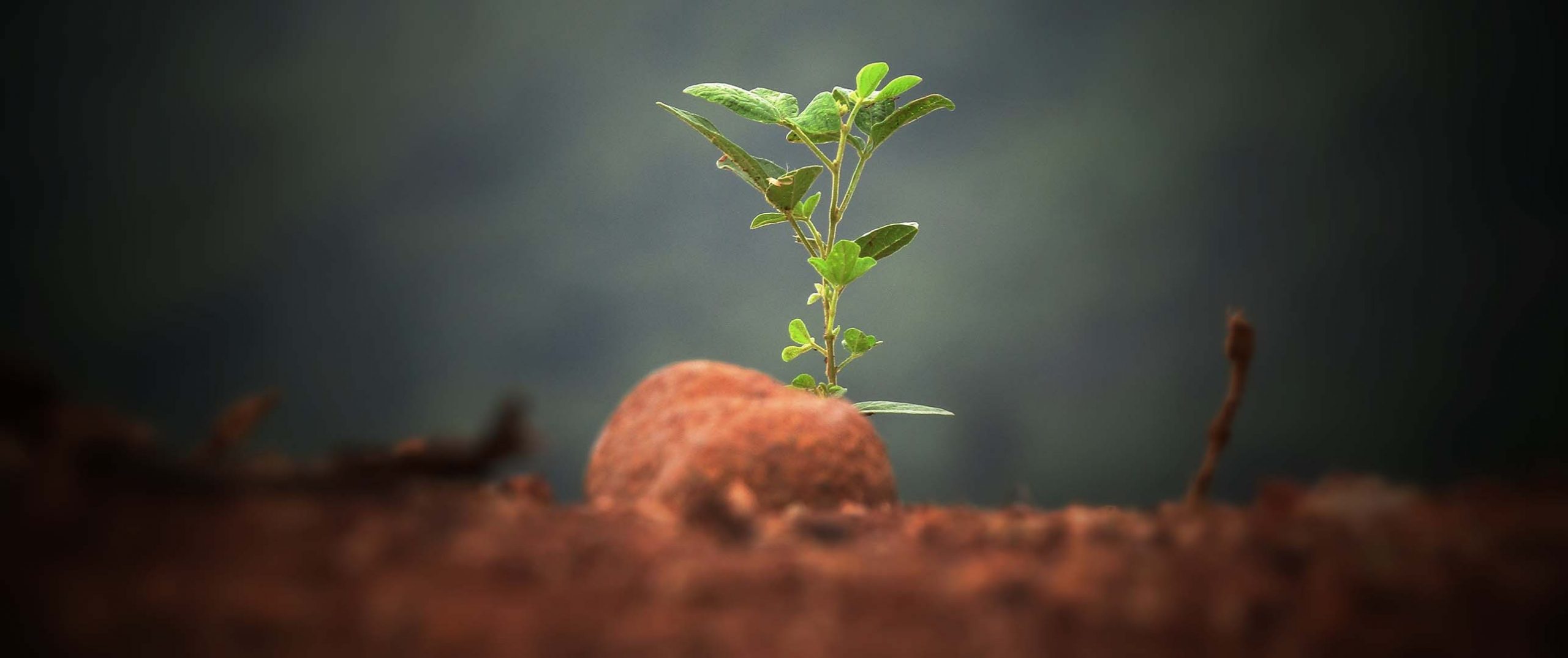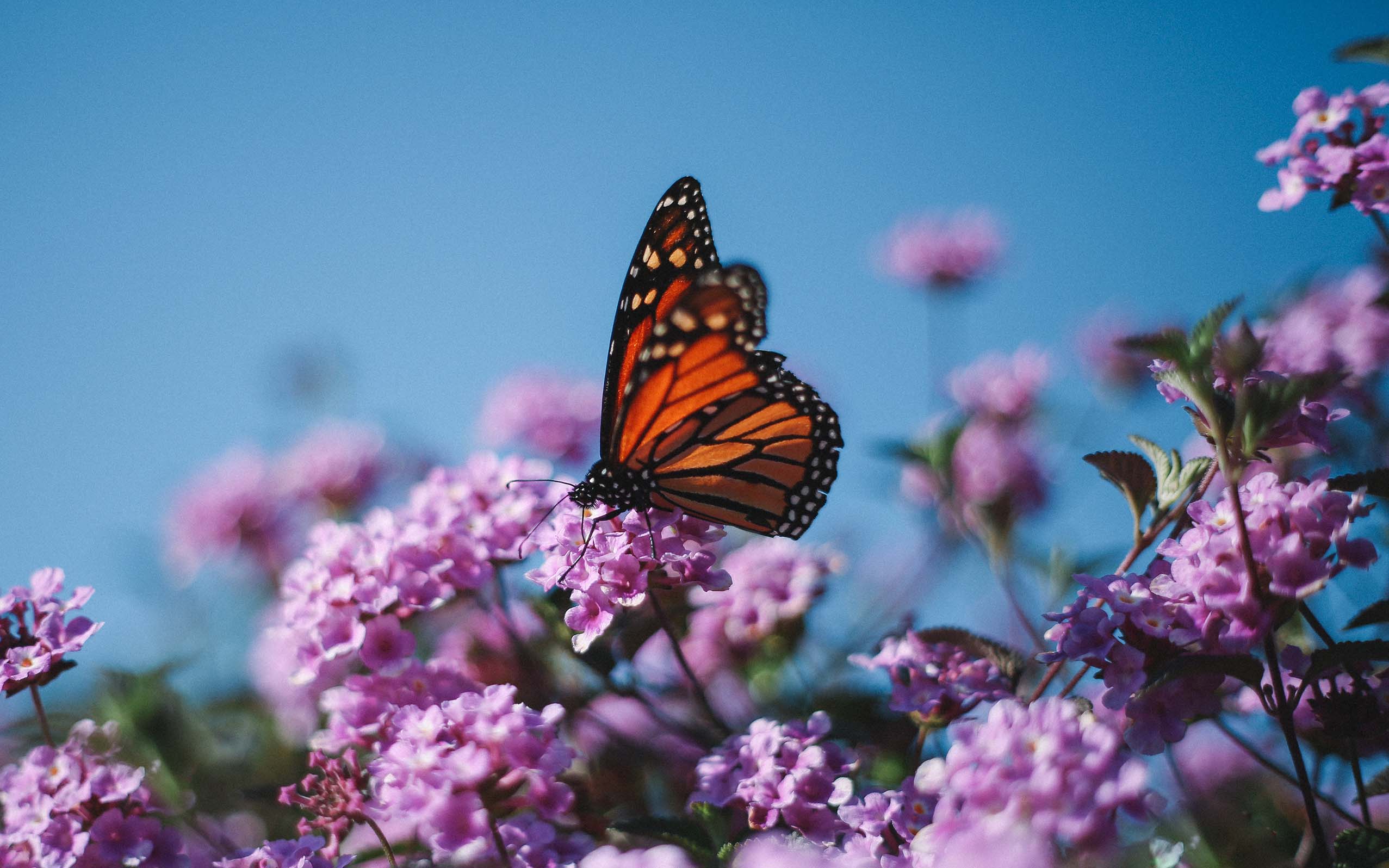Little Star
Our sun is tiny compared to many stars out there. For instance, astronomers measured a star as having a diameter 1700 times greater than the sun. That would make that star about 4 900 000 000 bigger than our sun.
Of course, scientists can’t get truly accurate measurements of stars. But even with a large degree of inaccuracy, I’d be feeling pretty small if I was the sun. I may decide that, in a universe full of billions of stars bigger and brighter than me, no one would know the difference if I decided to save some energy and turn off the light.
Thankfully the sun doesn’t have inferiority issues. It keeps shining its brightest 24/7, even though it doesn’t get a holiday. And that’s a big deal for us here on Earth.
Maybe you feel small and insignificant compared to some of the “big stars” around you. Just like the sun, you have an important role that no one else can fill. You have no idea how many lives will be bettered if you, with God’s help, do the little things that you can to “brighten the corner where you are.”
Nice...At First
The cheery yellow flowers brought sudden disappointment to my day. The flowers looked great, but they signaled a menacing invasion.
Puncturevine weed.
The name tells the story. This weed rapidly sprawls across the ground. Its yellow blooms give way to spiky seed clusters that are painfully sharp. The spikes on the seeds can easily puncture bike tires. The plants are inconspicuous at first: by the time you see them, they’ve usually sent many seeds hitch-hiking down the road as they stuck to passing tires.
I quit grieving my discovery and got to work. After delicately uprooting the plants I found, I searched for the seeds that had already been released to the ground. Picking up the obviously visible seeds with bare hands usually results in some acupuncture treatments to the fingertips. And often the best way to find the hidden seeds is by feeling along the ground…
The cheery yellow puncturevine flowers look inviting and innocent, but they grow into something ugly and painful that spreads out of control. Likewise, many things in life look good at first, but result in pain and loss, and cause a lot of painful work to anyone who tries to improve the situation.
The Bible doesn’t tell us to judge anything by its flowers. It says “you shall know them by their fruits” (Matthew 7:16-20).
So don’t be hasty to follow all the pretty flowers in life. Carefully consider what the end result will be.
The quote above from the book of Matthew refers specifically to religious teachers. Every religion comes in a flowery package. Ignore the flowers. Look for the religion that genuinely produces the Fruit of the Spirit (Galatians 5:22,23).
We’ve all sown bad seeds in our lives – seeds that produce wicked thorns. There’s still hope. Our Saviour endured a crown of thorns because He loves us too much to let the thorns of sin overspread and ruin our lives. If you let Him, He will patiently work to remove the thorns of sin from your life.
Removing puncturevine weeds seems like an endless battle. Wherever a plant grows to maturity, it leaves seeds that will grow up in the coming years. Diligent work must be done for years to remove most puncturevine problems.
Removing the thorns from our lives makes removing puncturevine look easy. Don’t give up. Keep asking God to work in your life, and keep sowing the good seeds of Bible truth in your life. God’s promise is “He Who began a good work in you will complete it until the day of Jesus Christ” (Philippians 1:6).
Dropped Plans
It was a beautiful day for working outside. I was sitting on a tractor, making planting beds for carrots.
In order to make a straight row, I had to focus on a tree across the valley. The dark evergreen trees that had persevered through the winter to keep the valley pretty were now being complemented by the fresh bright green of deciduous bushes coming back to life.
Then my focus was diverted by the pile of greenhouse materials at the end of the field. My mind started racing through thoughts of what might have been – ambitious plans that I had let die so I could contribute to other people’s plans.
Fortunately, the trees caught my thoughts again. In this part of Canada, there are no evergreens that produce anything worth eating. All the fruit that I enjoy – from the wild saskatoon berries on the hillside to the cherries in the orchard that are loaded with nutrition and flavour – all come from deciduous trees that “die” in the winter.
It’s the same in our lives. Only when we die to self can we bear fruit to God’s glory.
John 12:24, 25
John 3:3
John 15:4,5
Mathew 26:39
Water Before You Weed
“Water before you weed” is the response I got from a friend when I asked about lessons he’d learned on his farm.
It’s always disheartening to see weeds in your garden that are too big to be eliminated by cultivation. You probably know from experience that weeds like this will demand a lot of effort you’d rather put into other projects. The memory of sweating behind a shovel because the weed roots just wouldn’t surrender makes you want to just pull out the tiller and start the garden over.
Wisdom from experienced gardeners will help a lot in this situation. Instead of focusing on the problem, first make sure the garden gets a nice deep drink of water. Then you can come back and pull the weeds easily from the softened soil.
Dealing with people can make problems in the garden seem very insignificant, but this garden wisdom is invaluable for these situations. Water with kindness and encouragement: then the deep-rooted problems you face will later be much easier to solve.
Part 2
“Well, weeds are an awful lot like bad habits, aren’t they?” is the answer I got from another farmer friend when I asked him for object lessons from his farm.
I can think of many ways this is true:
Weeds are much easier to deal with when they’re small.
A weed left to grow will produce more weeds.
Weeds keep appearing after you think they’re all gone.
Weeds look innocent in the beginning, but they choke out the good you’re trying to grow.
Watering before weeding is vital when it comes to fighting bad habits.
Addictive behaviour often is a result of losing healthy relationships, so watering with kindness and helpfulness is a way to build a safeguard against bad habits.
The Bible principle is “overcome evil with good”, Romans 12:21. I have found this to be the only way to get long-term victory over bad habits.
Ultimately, the best way to keep a garden weed-free is to have it full of good plants. “You’ll be a poor farmer if all you do is pick weeds” is advice from another farmer.
Matthew 13:31, 32 compares the kingdom of heaven to a tiny mustard seed that eventually grows huge. Planting Bible truths in your life may seem to give you little reward for your effort at first. Don’t give up. Keep watering and weeding. God will grow something good in you. Eventually, it will get so good that your favourite bad habits will be replaced with something far better.
To Give is to Live
With a mighty heave, a seedling forces its first two little leaves above the soil. It needs all the energy it can get, so it can grow big and produce as many seeds as possible. Every moment is critical: a frost may put this plant’s efforts to a halt in less than four months. At this stage, every lush green solar panel it can grow will make a decisive difference in whether or not the plant will achieve its goal. Every root fibre it can force through the uncooperative ground is just as important, because mining essential minerals from the soil is very difficult for plants.
So why does this plant release much of its energy into the soil as sugars and fats? Shouldn’t it save every resource it has? Why should this plant bother to feed the hungry colony of microscopic bacteria and fungi beneath its feet?
As the plant struggles to push its roots through the stubborn soil, strands of fungi reach out to those roots. The fungi easily thread webs of mineral-mining hyphae through the soil. As the plant gives food to the fungi, the fungi bring mineral building blocks to the plant that it could never reach on its own.
I again read the message that nature illustrates in so many ways: “To give is to live.”
Jesus’ self-appointed task makes any of my goals look microscopically insignificant. Saving planet Earth would have been easy for Him. Saving its inhabitants is another story. And why should he care to save a bunch of selfish Earthlings like me, when He already had a heaven full of angels whose greatest joy was to do His bidding? Showing us His power would have been easy. Showing us His character was hard. He endured the hardest tests and trials so that we can know that He’s always trustworthy and good. Jesus showed us that, though He’s worthy of every gift, He delights to give.
He built mansions for us in Heaven. That was easy. Now He’s patiently trying to teach us that life here isn’t about a home in the suburbs, and life in Heaven isn’t about a mansion of gold. It’s about people. It’s about giving.
A Gift Like Water
It quenches thirst
Transports nutrients
Regulates body temperature
Cleans cells
By expanding when it freezes, it lets life survive in frozen bodies of water
By absorbing energy when it evaporates, it regulates Earth’s climate
It’s the both basis and protector of all life we see
But it doesn’t only meet our needs.
Water gives us rainbows
Snow and frost turn dull winter wastes into beautiful wonderlands
Clouds turn the sky into artwork
Everything from canoeing to wake boarding, and from skating to snowboarding is thanks to water
God is offering you a gift like water:
John 4:14
John 7:37-39
Revelation 22:17
True Transformation
What kind of aircraft would you compare dragonflies with? An Apache attack helicopter? With the maneuverability of an F-14 Tomcat? How about something you saw on Star Wars? The abilities of dragonflies to hover in the air, suddenly dart in any direction, and perform impressive aerial maneuvers hint of marvelous engineering. Dragonflies are among the fasted of the insects; some have been clocked at 60km/hr.
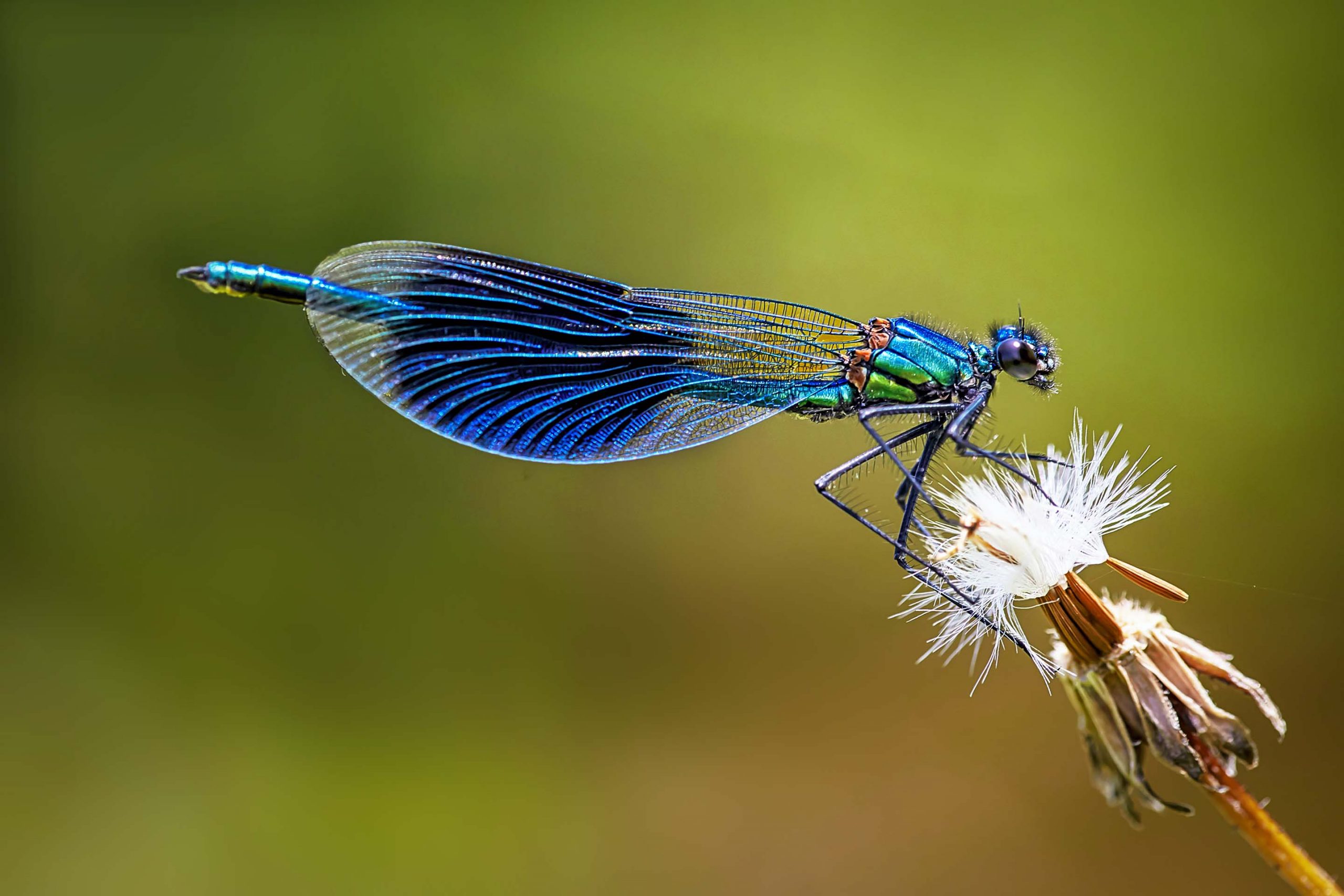
Damselflies are the beautiful, generally more delicate cousins of dragonflies. Yet even some damselflies are known to pluck spiders from off their webs. The easiest way to distinguish damselflies from their relatives is resting wing position; damselflies fold their wings over their backs, while dragonflies can’t.
The favored hunting space of dragonflies is near ponds, swamps, and streams – where so many flies, mosquitoes, and other harmful insects thrive. Dragonflies put their aerial abilities to good use, doing much to keep the populations of these disease-spreading swarms in check. Incredible use – they can eat the equivalent of their body weight in 30 minutes. Few and lucky are targeted insects that escape. Damselflies do a similar job, though they seem to prefer hunting overflowing streams.
The majority of a dragonfly or damselfly’s life is not spent as a beautiful aerialist. After hatching, they generally spend between six months and two years as a rather ugly, though well-camouflaged nymph. Some spend six years in this stage. Though they are well-equipped underwater predators, they’re simply not the beauties they were meant to be.
Many people have been born and raised as Christians. They may faithfully go to church and fulfill other requirements, but when it comes down to it, their experience is rather meaningless. Their experience lacks the life and power that the Bible tells us that people had. Many try to mask this fact with rousing worship music and lively events. But the life-changing power that let Paul and Silas sing while in prison (after a beating, and while in stocks) is sadly lacking.
Just like the worst criminals, every person, no matter how good they seem, needs a true conversion experience. Just like a larval dragonfly needs to crawl out of the pond it has called home and shed the nymph body it has relied on for so long, each person needs to be “born again”.
One of the most respected teachers in first-century Israel came to Jesus for some insight. Jesus frankly told him that unless one is born again, he can’t experience the kingdom of God. Then Jesus told him the most profound truth that there is: “God so loved the world that He gave His only begotten Son, that whoever believes in Him should not perish but have everlasting life.” (John 3:16)
Let me try to add some perspective. The three beings who are God (Father, Son, and Holy Spirit) loved the people of this rebellious planet (you and me who by nature want to reject, even hate, God) that they sent one of themselves (Jesus, the Son) to us. Jesus didn’t come in His kingly power – he lived as a poor man of the working class. At the age of thirty, He left His humble home, and for three and a half years He did His very best to reveal God’s character to the people around Him. This involved whole nights in prayer, many tiring journeys on foot, and a whole lot of rejection – even persecution – from people who pretended to be perfect (even when proven wrong).
Jesus’ love for you and me led Him to choose these countless hardships over the easy-out the devil offered Him. He conquered the absolute worst of trials and temptations, even though He was bound by the weakness of humanity (Hebrews 2:14-18; 4:15). His love for us caused Him to submit to the most painful death known to man, even though He could have instantaneously freed Himself with a single prayer (Matthew 26:53). And though this all happened nearly two thousand years ago, He’s still not done. “He always lives to make intercession” for anyone who’s willing to come to Him (Hebrews 7:25).
God won’t force us to “love” Him. True love can’t be forced; it must be developed through experience – intimate knowledge. God invites us to develop this experience. We accept this invitation by inviting Him to work in our lives, then getting to know Him through prayerful Bible study. God promises His personal help – through the Holy Spirit – in this relationship. With the Holy Spirit’s help, we can also learn much about God by observing His creation – such as dragonflies, damselflies, butterflies…
As we get to know God, we’ll learn to love Him more and more – for His character more than for His power. We’ll see His goodness, even in places where we formerly saw only wrath or apathy. Seeing God’s goodness is what leads us to repentance (Romans 2:4). And the repentant – those who feel their need of God – are the ones God can work with.
A very helpful book that has helped many people develop a personal relationship with God in Step to Christ. You can read or listen to it online at http://steps-to-christ.org
Total Transformation
When you think of butterflies, what do you think of?
Beauty? Grace?
Butterflies are not only beautiful, they are also very complex, designed to bring more beauty to the world around them. While feeding, they gracefully float back and forth between flowers, pollinating them as they go. Often they don’t just stay on one flower until its nectar has all been drunk, but go from flower to flower, and land on the same flower many times. It almost seems that they care more about pollinating than feeding.
Butterflies are highly specialized. When ready to lay eggs, a female butterfly uses her powerful sense of smell to detect specific species of plants, even from far away. When she has found the plant, she scratches and tastes the plant to ensure that it’s the right one. If she made a mistake here, her offspring would starve; some caterpillars only feed on one plant type.
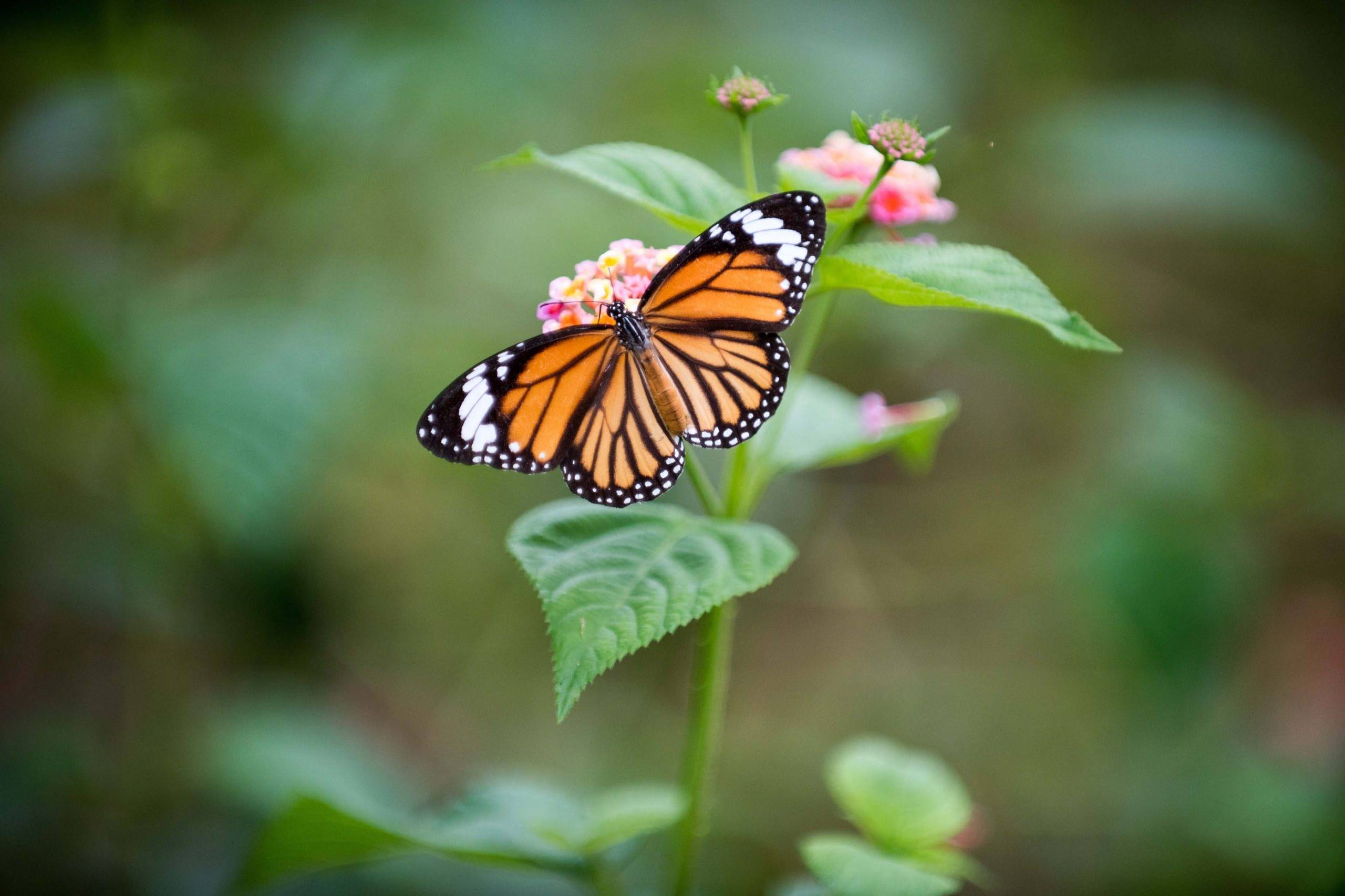
Consider monarch butterflies. It’s hard to realize how small a monarch’s brain is (I’m talking about butterflies here). Yet the autumn generation of monarch butterflies knows how to prepare for and travel a journey of thousands of kilometers – to a specific place they’ve never been to before. Their delicate wings carry them through clashing weather systems; somehow they find favorable air currents, and often travel faster than their wings alone can propel them. Unaided by aircraft instruments, charts and ground control, they fly from all across southern Canada and the northern United States to specific sites in the mountains of Mexico.
Imagine telling a monarch caterpillar of the journey he needs to make. Imagine pointing him in the right direction, telling him he’ll need to hurry. If he crawls onto the right vehicles, he might still be able to make it. Fortunately, the caterpillar doesn’t take the hint: he finds another milkweed and keeps stuffing his face.
Eventually, he finds a branch and secures himself to it. And there he hangs. Summer is disappearing: he has no time for this siesta! To make the matter worse, he soon sheds his outer skin – and his legs with it. Where’s his hope now?
Just when, you’re ready to completely give up on the lazy caterpillar, the cocoon he’s been snoozing in starts to split open. You watch, skeptical that he’s finally ready to wake up.
To your amazement, a totally different creature emerges, unfolds his wings, assembles his feeding tube, and flutters away.
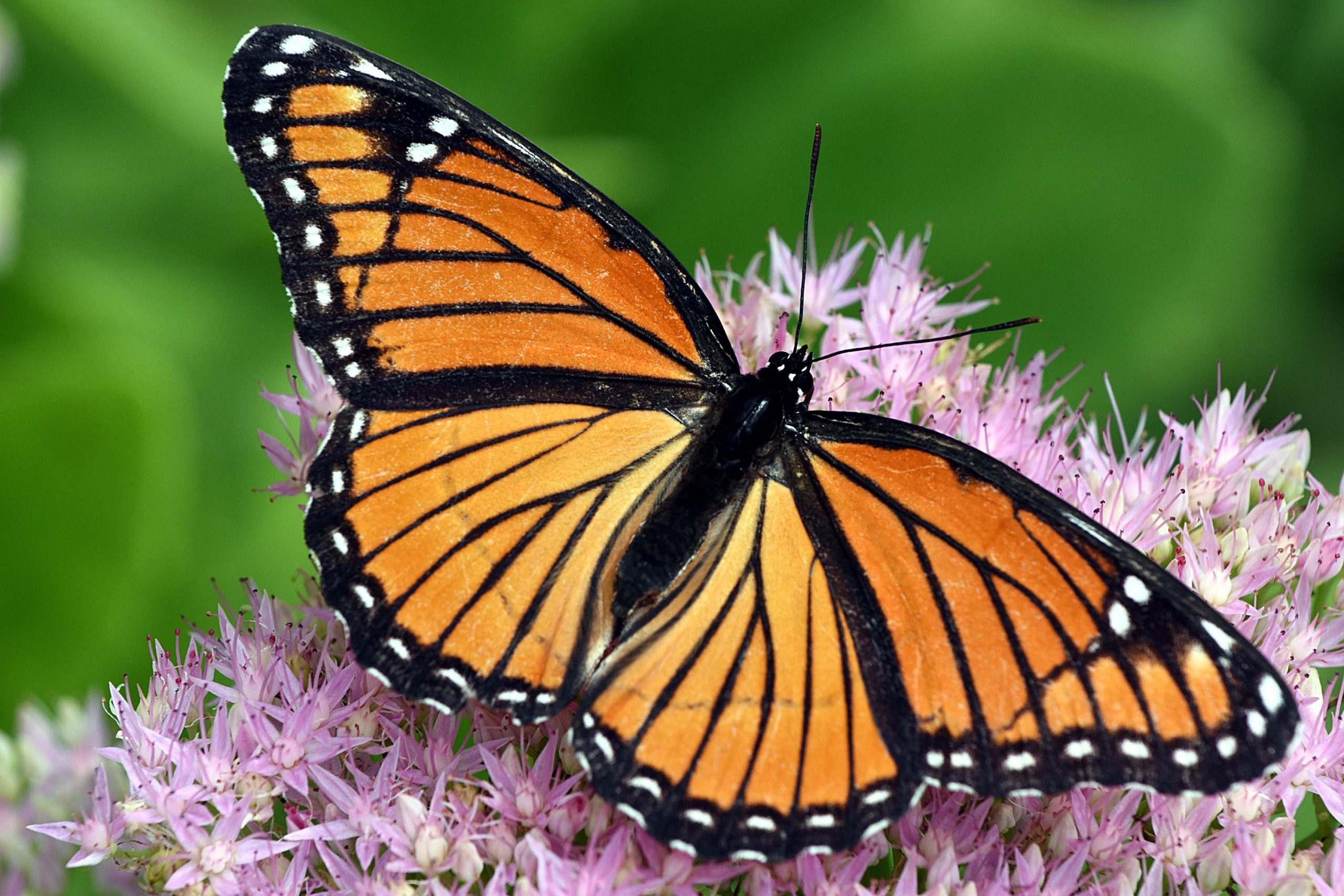
Maybe you know someone who is headed completely in the wrong direction in life. Maybe, you hope, this person desires to turn his or her life around – live a life that’s beneficial for once. But even if this is the desire, he or she just can’t make it happen. This person looks completely hopeless. Maybe this person is you.
There is hope for this person. This hope is not in trying harder. No matter how hard a caterpillar tries to crawl in the right direction, he’ll never succeed like this. He must become a different creature. It’s the same for every one of us.
There’s a battle in the mind of each person – and it’s a battle that we are too weak to win. Every winner in this battle must become a different creature; though not physically like the caterpillar. We need new hearts, that is, new minds. But how? Is it even possible?
There are many religions, each claiming to offer a solution to this problem. A quick look at world news will make it plain that the majority of these are not doing the job.
The Bible tells us that religious rituals will not solve the problem, that “neither circumcision nor uncircumcision avails anything, but a new creation.” Galatians 6:15
The good news is that “if anyone is in Christ, he is a new creation; old things have passed away; behold, all things have become new. ” 2 Corinthians 5:17
God offers each of us the gift of a new mind – a character transformation that will make us into the loving, lovable people that we so desperately need to be. “I will give you a new heart and put a new spirit within you; I will take the heart of stone out of your flesh and give you a heart of flesh. I will put My Spirit within you and cause you to walk in My statutes, and you will keep My judgments and do them.”
Is there anything in your life that’s more important than this transformation? To learn more, check out the Discover Bible Guides Or, to learn why you can even trust the Bible, check out “Is There Anything Left You Can Trust?”

